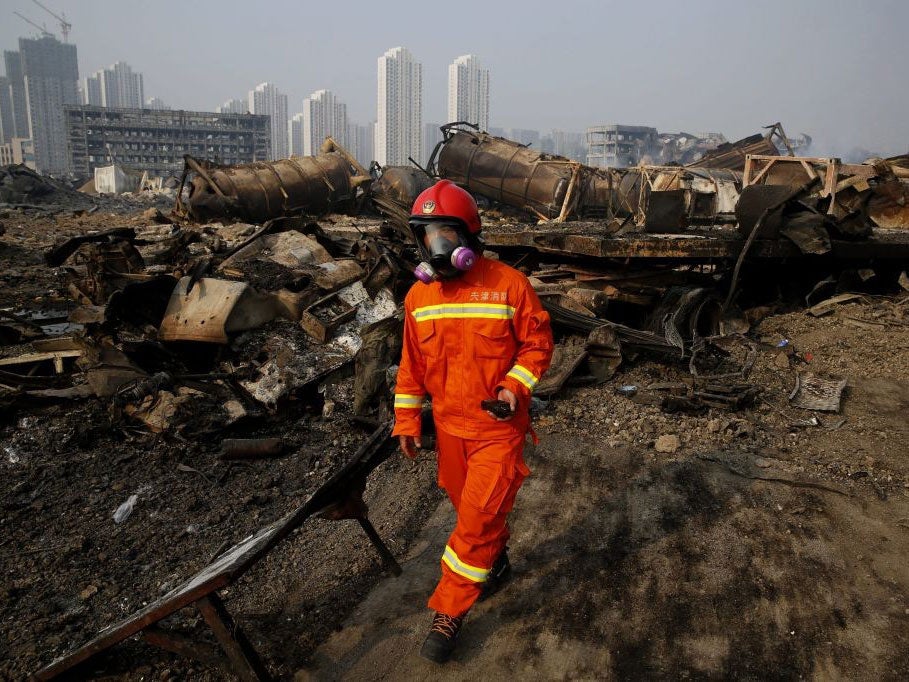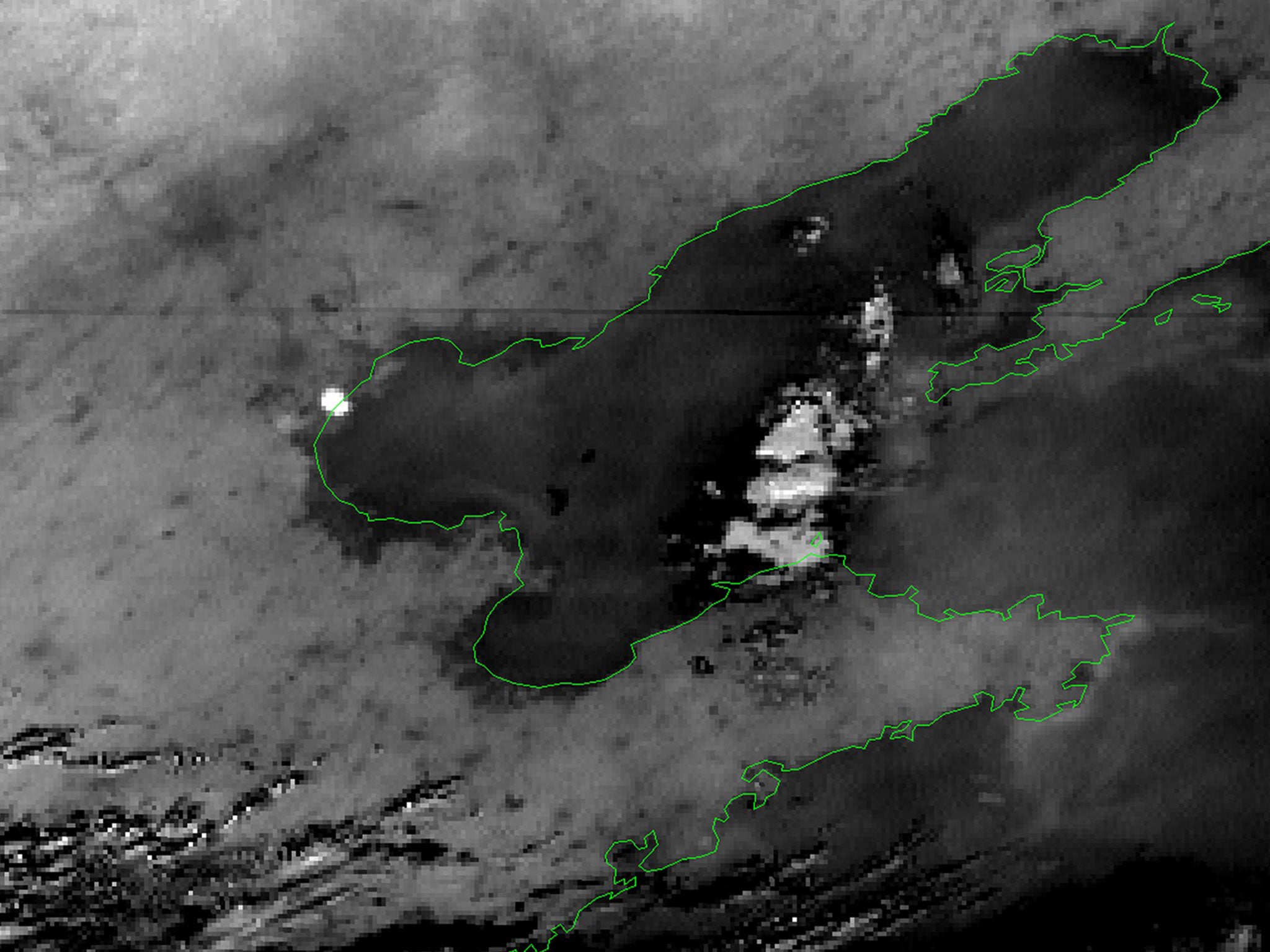China explosions: Evacuation ordered over fears of sodium cyanide contamination in Tianjin
State media said 'toxic substances' including sodium cyanide had been found three days after chemical explosions killed at least 105 people

Chinese authorities have evacuated thousands of people from three kilometres around the site of deadly explosions in Tianjin after discovering sodium cyanide among other toxic chemicals.
The exclusion zone was brought in on Saturday, three days after the blasts that killed at least 105 people.
At least seven smaller blasts were recorded yesterday, including in a car park next to the explosion site, as firefighters continued to tackle blazes across the port area.
Warning: Footage contains strong language
Zhou Tian, the head of Tianjin Fire Department, said: “Many types of different materials with different characteristics are mixed together and could at any time result in a chemical reaction or explosion.”
Government officials initially refused to comment on residents’ fears that the volatile cocktail of industrial chemicals that caused the disaster had spread into the air and water.
But this morning, the official Xinhua news agency confirmed that the exclusion zone had been introduced “for fear of chemical contamination”.
Photographs showed government chemical warfare specialists at the still smouldering site wearing protective clothes and gas masks.

The state-backed People’s Daily newspaper tweeted that they had sent to handle “toxic sodium cyanide” discovered in the devastated port area.
The compound is among the most rapidly acting poisons known when ingested or inhaled, and an oral dosage as small as 200mg can be fatal.
At a news conference on Thursday, Wen Wurui, a senior environmental official, had played down the threat of contaminated air and claimed emission readings had dropped to safe levels.
Meanwhile, the Tianjin Internet Police issued a warning that anyone spreading “rumours” about the disaster and its effects would be “severely dealt with according to the law”.
Comments criticising the emergency response on social media were deleted by authorities and blogs sharing news were shut down.
Today’s exclusion zone was brought in as angry relatives of around 25 missing firefighters stormed a government news conference, demanding information on their loved ones.
“We have gone to each and every hospital by ourselves and not found them,” said Wang Baoxia, whose elder brother has not been seen since he left to fight Wednesday’s fire.
“There is no government official willing to meet us. Not even one.”
State media reported the rescue of a survivor this morning but hopes are fading for dozens of people who are still unaccounted for.
Firefighters had been called to a warehouse storing toxic chemicals 40 minutes before the explosions started at around 11.30pm local time on Wednesday.
Two huge blasts, including one with the force of 21 tons of TNT, came just 30 seconds apart. They were so large they could be seen from space and were registered by earthquake sensors.
Ruihai International Logistics had reportedly been storing chemicals including sodium cyanide, toluene diisocyanate, ammonium nitrate, potassium nitrate and calcium carbide.
"I do feel a bit afraid," said construction worker Li Shulan, when asked about the air quality. "It definitely doesn't feel good. As you can see our boss is making us wear masks."
About 6,300 people have been displaced by the blasts and around 720 people were injured, including 33 who are in a serious condition.
Additional reporting by Reuters and PA
Join our commenting forum
Join thought-provoking conversations, follow other Independent readers and see their replies
Comments
Bookmark popover
Removed from bookmarks